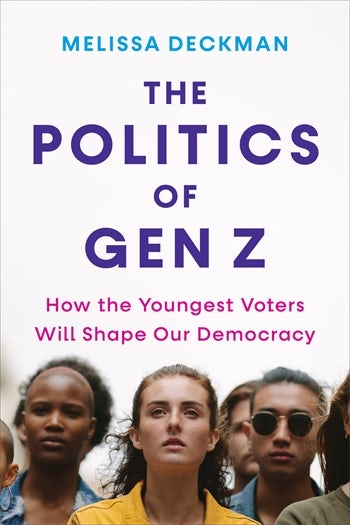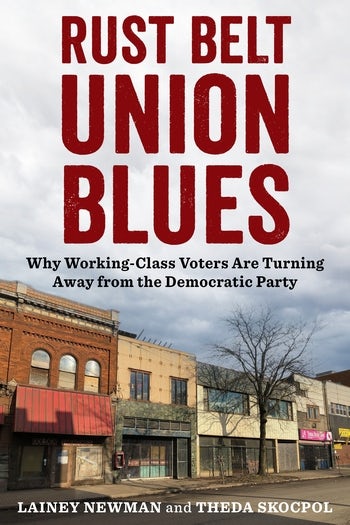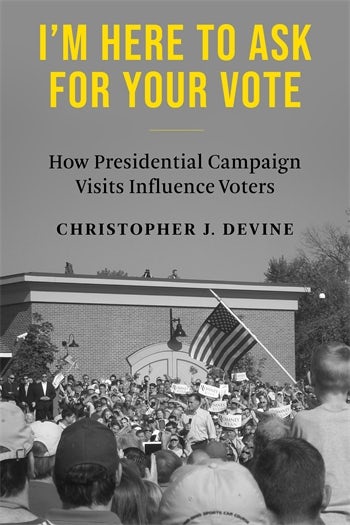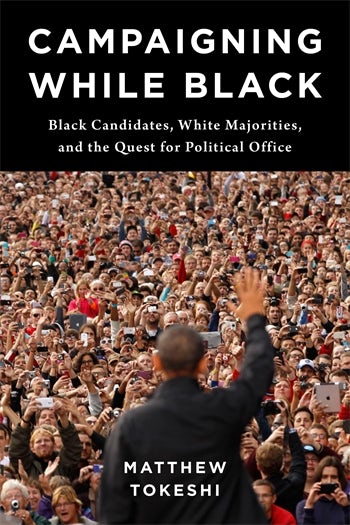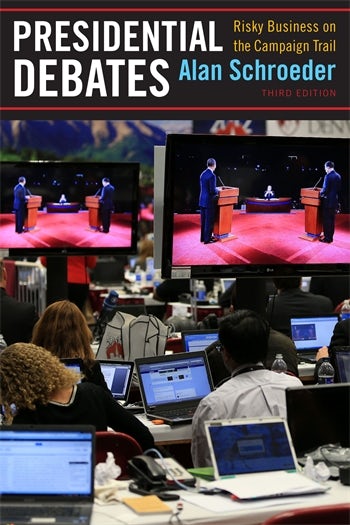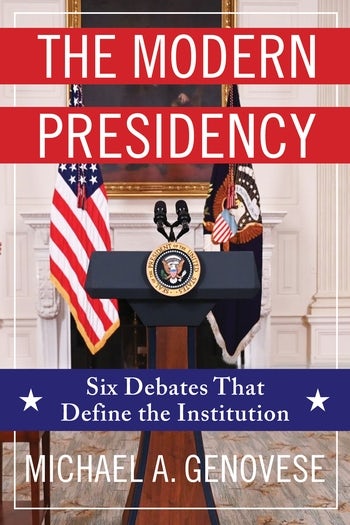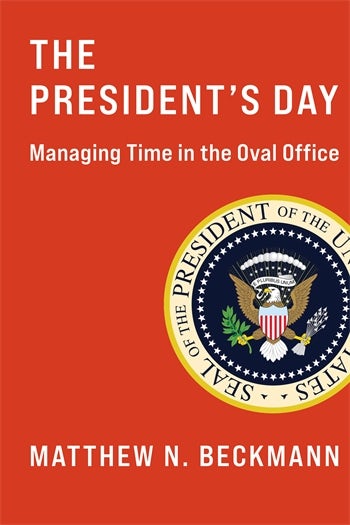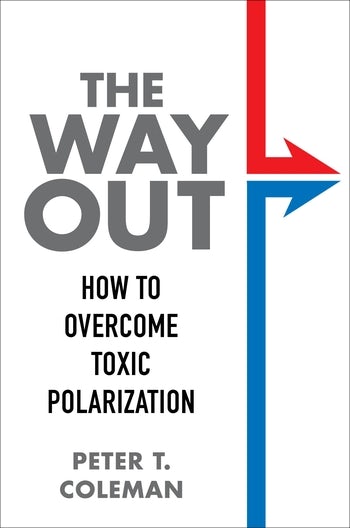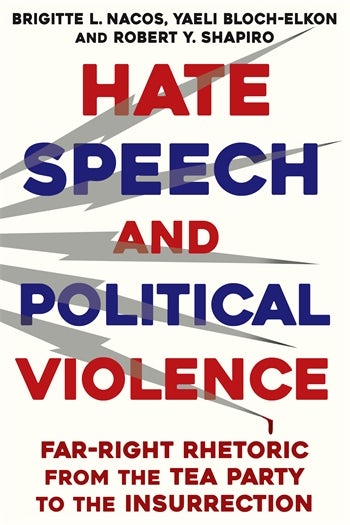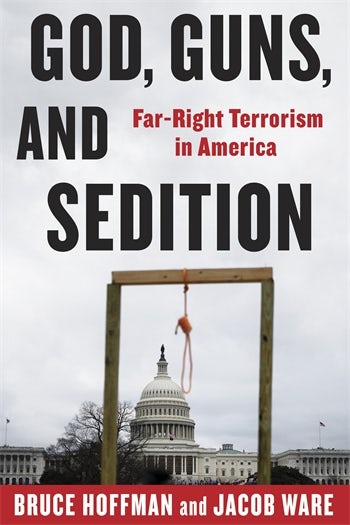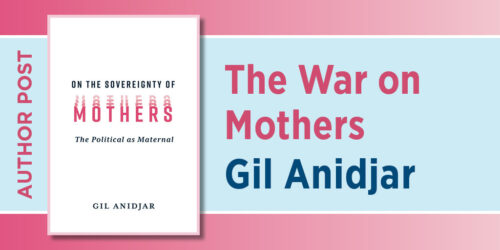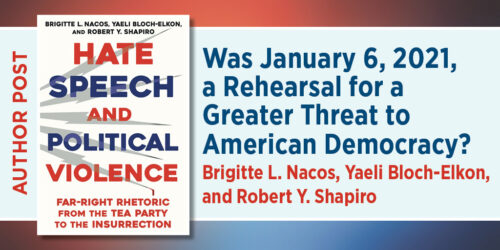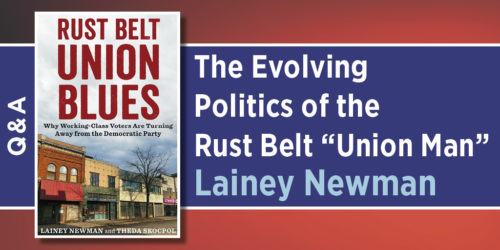12 Must-Read Books About U.S. Voters, Presidential Campaigns, and Partisan Politics
Raina Mansfield
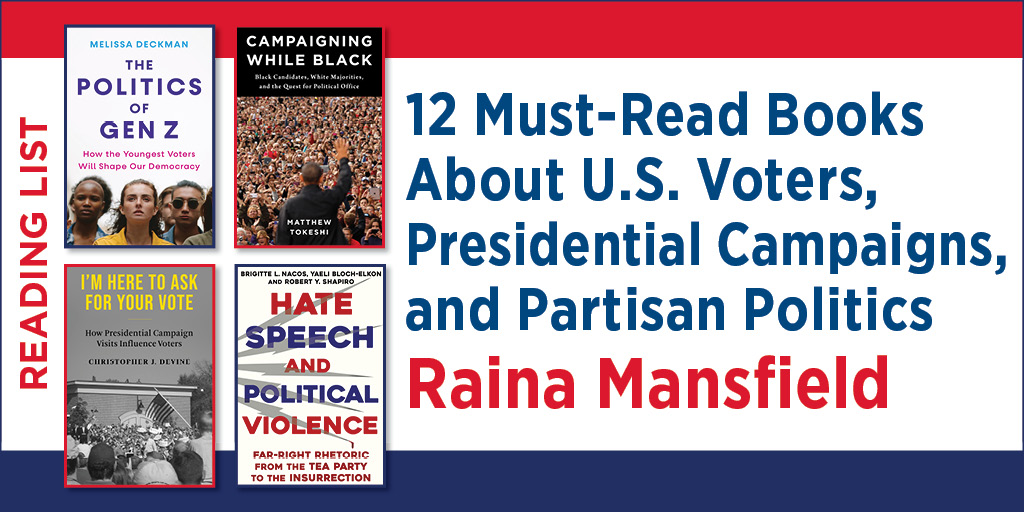
This November, millions of Americans will vote in what is sure to be a historic election. To help you be more informed about the current U.S. voting base and campaign politics, we curated this book list that offers a fresh perspective on voters, campaign insights, the U.S. presidency, and party relations.
U.S. Voters:
The Politics of Gen Z
How the Youngest Voters Will Shape Our Democracy
Melissa Deckman
Many members of Gen Z will be voting in 2024 for the very first time. The Politics of Gen Z tells the story of this generation’s growing political participation—and why it is poised to drive U.S. politics leftward. Gen Z has come of age in a decade of upheavals, from the COVID-19 pandemic to the elimination of constitutional protections for abortion, civil rights, environmental laws, andmore. In response, left-leaning Zoomers, particularly women and LGBTQ people, have banded together to take action. The political scientist Melissa Deckman explores this world of youth-led progressive organizing, highlighting the crucial importance of gender and sexuality as well as ramifications for the future.
Rust Belt Union Blues
Why Working-Class Voters Are Turning Away from the Democratic Party
Lainey Newman and Theda Skocpol
A book that stands out as particularly helpful in the 2024 election, especially with Pennsylvania maintaining its status as a battleground state, Rust Belt Union Blues provides poignant insight into the relationship between the decline of unions and the shift of working-class voters away from Democrats. Using western Pennsylvania as a case study, Lainey Newman and Theda Skocpol argue that union members’ loyalty to Democratic candidates was as much a product of the group identity that unions fostered as it was a response to the Democratic Party’s economic policies. Read more of what Lainey Newman has to say in this Q&A.
The Rural Voter
The Politics of Place and the Disuniting of America
Nicholas F. Jacobs and Daniel M. Shea
The Rural Voter examines the widening gulf between urban and rural America. The “rural voter” is a new political identity that exacerbates the current partisanship divide. Nicholas F. Jacobs and Daniel M. Shea analyze how this overwhelmingly crucial voting bloc emerged and how it has roiled American politics. This book offers a timely warning that the chasm separating urban and rural Americans cannot be papered over with policies or rhetoric. Read more from Shea and Jacobs on the importance of a Democratic presence in rural America in this Q&A.
U.S. Presidential Campaigns:
I’m Here to Ask for Your Vote
How Presidential Campaign Visits Influence Voters
Christopher J. Devine
Campaign season is one of the most hectic periods of any election cycle. In I’m Here to Ask for Your Vote, Christopher J. Devine looks at the strategy of presidential campaign visits. Using a database of campaign visits from 2008 to 2020, Devine estimates the impact of visits on voter turnout and choice. He finds that campaigning is effective when candidates can persuade those who are undecided, which is what occurred in 2008 with John McCain and in 2020 with Donald Trump. Read what Devine says are three myths about presidential campaign visits in this guest blog post.
Campaigning While Black
Black Candidates, White Majorities, and the Quest for Political Office
Matthew Tokeshi
In Campaigning While Black, Matthew Tokeshi examines an interesting question: why, with 11 percent of the U.S. electorate being Black, are only 3 percent of senators and 2 percent of governors are Black? He focuses on the stereotypical attacks that Black candidates receive throughout their campaigns and how this can affect their appeal among some white voters. Tokeshi also highlights how Black candidates have and can overcome these attacks and barriers.
Presidential Debates
Risky Business on the Campaign Trail, third edition
Alan Schroeder
Debates have already proven to be an integral part of gaining or losing voter support in the 2024 election cycle. In this latest edition of Presidential Debates, Alan Schroeder analyzes the 2008 and 2012 debates and the crucial role social media had in shaping their reception. In addition, he expands upon the 1960 debates between John F. Kennedy and Richard Nixon. Be sure to also listen to Schroder’s thoughts on the first 2024 debate between Donald Trump and Joe Biden on WCBSAM: On-Demand.
The Modern Presidency
Six Debates That Define the Institution
Michael A. Genovese
In The Modern Presidency, Michael A. Genovese answers six key questions that define the past, present, and future of the U.S. presidency. These questions range from “Which is more important, character or competence?” and “And will future presidencies turn away from checks and balances in favor of illiberal democracy?”
The President’s Day
Managing Time in the Oval Office
Matthew N. Beckmann
An often overlooked aspect of the presidency is time management and scheduling. In this unique book, Matthew N. Beckmann argues that scheduling defines the president’s role and agenda. Spanning administrations from John F. Kennedy to George W. Bush, Beckmann exposes each president’s signature pattern in terms of when to work, how long to work, how much to pack in, what to prioritize, and whom to see along the way.
Partisanship in U.S. Politics:
The Way Out
How to Overcome Toxic Polarization
Peter T. Coleman
The Way Out offers an escape from the bipartisan divide that has increasingly plagued American politics in these recent election cycles. Providing a psychological perspective, Peter T. Coleman gives readers guidance on how to deal with political differences. A must-read for the upcoming presidential election, or for simply dealing with political talk at family events. In this piece, Coleman shares actionable steps to avoid polarization in you home, workplace, and community in.
Hate Speech and Political Violence
Far-Right Rhetoric from the Tea Party to the Insurrection
Brigitte L. Nacos, Yaeli Bloch-Elkon, and Robert Y. Shapiro
This timely book reveals how the Tea Party and extremist narratives laid the groundwork for Donald Trump’s presidency and perseverance in American politics. Tracing the rise in far-right narratives of violence during the Obama administration, Brigitte L. Nacos, Yaeli Bloch-Elkon, and Robert Y. Shapiro reveal how the Tea Party pioneered Trump’s rhetorical strategies. Following this, the authors explore how this rhetoric spilled over into real-world political violence.
God, Guns, and Sedition
Far-Right Terrorism in America
Bruce Hoffman and Jacob Ware
God, Guns, and Sedition is an in-depth account of far-right political violence in the United States. Written by two preeminent experts in domestic terrorism, this book combines astute analysis with gripping storytelling that culminates in a clear summary of a process that has developed for decades. Listen to this interview with Hoffman on the Precision-Guided podcast
Contesting the Far Right
A Psychoanalytic and Feminist Critical Theory Approach
Claudia Leeb
Contesting the Far Right uses psychoanalysis to explore why so many people respond to exploitation and alienation by supporting the far right. Claudia Leeb compares cases including Donald Trump and the alt-right in the United States and the Freedom Party and the identitarian movement in Austria. At once theoretically rich and politically engaged, this book also offers ways to resist the far right and counter the psychological appeal of its propaganda techniques.
Categories:PoliticsReading List
Tags:Alan Schroederamerican politicsand SeditionBrigitte L. NacosBruce HoffmanCampaigning While BlackChristopher J. DevineClaudia LeebContesting the Far RightDaniel M. SheaElection 2024GodGunsHate Speech and Political ViolenceI’m Here to Ask for Your VoteInform Your VoteJacob WareLainey NewmanMatthew N. BeckmannMatthew TokeshiMelissa DeckmanMichael A. GenoveseNicholas F. JacobsPeter T. ColemanPresidential DebatesRobert Y. ShapiroRust Belt Union BluesThe Modern PresidencyThe Politics of Gen ZThe President’s DayThe Rural VoterThe Way OutTheda SkocpolUS PoliticsYaeli Bloch-Elkon

